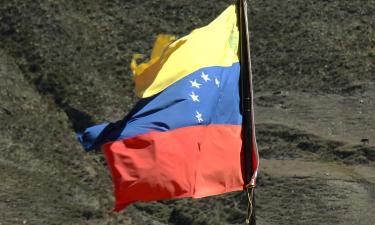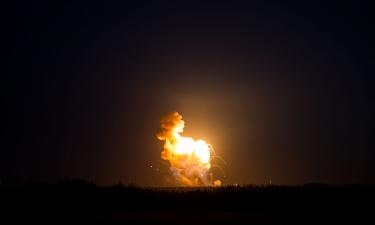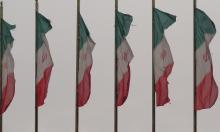Latin America and Europe condemn US tortures in Iraq
 In a joint statement, leaders from all Latin American and European nations condemned US tortures of Iraqi prisoners, but Europeans refused to condemn Washington’s hard line to Cuba. Latin Americans did it.
In a joint statement, leaders from all Latin American and European nations condemned US tortures of Iraqi prisoners, but Europeans refused to condemn Washington’s hard line to Cuba. Latin Americans did it.
Leaders and top diplomatic officials from 33 Latin American countries and 25 European nations joined in the Mexican city of Guadalajara to blast the US-led campaign in Iraq. The 58 nations signed a joint declaration which denounces “the abuse of prisoners in Iraq”, as delivered criticism of the United States for its refusal to cooperate with the United Nations. As it was expected, neither British Prime Minister, nor his Italian counterpart Silvio Berlusconi, attended the meeting.
In a declaration to be issued on Friday, officials attending the Third Summit of Latin America, the Caribbean and the European Union condemned unilateral actions contradicting international law and outlined that ‘our horror at the recent evidence of mistreatment of the prisoners in Iraqi prisons’.
"We energetically condemn all forms of abuse, torture and other cruelty, degrading and inhuman treating people, including prisoners of war, in whatever location they occur," states the document. "We express our horror at the recent evidence of mistreating prisoners in Iraq. These abuses go against international law, such as Geneva Convention’.
However, Latin America and Europe expressed different opinions on the US 42-year-old blockade against Cuba and the new measures adopted by the US State Department “to speed up a democratic transition” in the Island. Latin American countries intended to condemn the law which punishes foreign companies that make profit from the confiscated US property in Cuba and call the government of the United States to abolish the law. However, the EU did not accept such wording, and probably Castro did not attend the meeting as a protest gesture against this.
However, Cuba’s participation of the meeting can be seen as a success. Peru’s conservative and unpopular president Alejandro Toledo refused to condemn the US policy to Cuba, but Havana’s diplomats managed to strengthen ties with Mexico, after the two countries almost broke them off several weeks ago. Mexico condemned Cuba’s human rights policy at the UN forum then.
At a stopover in Mexico City on May 25, on the way to the Guadalajara summit, German Chancellor Gerard Schroeder produced some important remarks on the U.S.-British draft UN Security Council resolution on Iraq. Mr. Schroeder said that the current draft version must be modified, and added that Germany wants a "real handover of sovereignty" in Iraq.
Germany - together with Russia, France and China - is proposing major changes to the resolution, which would give Iraq's interim government control over the Iraqi army and police and require the U.S.-led multinational force to consult on military actions except for self-defense.
French President Jacques Chirac, visiting Guatemala before the summit, said the U.S.-British resolution needed to be improved, adding that Iraq should have sovereignty over its armed forces and natural resources starting June 30. Spanish Prime Minister Jose Luis Rodriguez Zapatero, in turn, when meeting with Mexico’s Vicente Fox, praised Mexico's "bravery" in refusing to back the Iraq war and lauded Mexico's calls for multilateral foreign policy actions
Trade issues also dominated the summit's agenda, with the EU and the four Mercosur nations -Argentina, Brazil, Paraguay and Uruguay- saying they intend to sign an "ambitious" free trade accord in October. However, they did not agree in crucial points, as the total liberalization of the agricultural trading.
Hernan Etchaleco
Subscribe to Pravda.Ru Telegram channel, Facebook, RSS!





